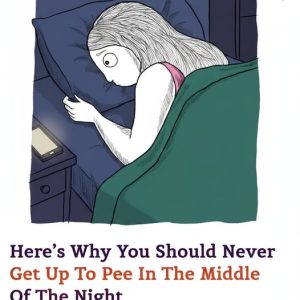The post centers on a vivid childhood memory that the writer feels compelled to share because friends find it too unbelievable to be true. It highlights how dramatically parenting practices have changed across generations, especially when it comes to diaper care. The writer begins by reflecting on how modern parents often hear that they “have it easy,” a claim that becomes apparent when compared to the grittier, more labor-intensive routines of earlier decades. Before disposable diapers were widespread or affordable, parents relied almost entirely on cloth diapers. These required constant washing, careful handling, and an entirely different mindset toward sanitation and childcare.
The centerpiece of the memory is the writer’s mother’s routine: rinsing dirty cloth diapers in the toilet, wringing them out by hand, and storing them in a diaper pail until wash day. Today, such a process sounds shocking and perhaps unsanitary, but for many parents at the time, it was simply part of daily life. The toilet served as a practical rinsing station because it allowed for quick disposal of waste and access to water. Once rinsed, the diaper could be squeezed out and placed in a container designed to hold soiled cloth until enough accumulated for laundering. This process required endurance, a strong stomach, and unwavering commitment—traits many parents of previous generations displayed regularly.
The writer emphasizes that their friends doubt the story, illustrating how foreign these old routines seem to those accustomed to modern conveniences. Disposable diapers, baby wipes, diaper-genie systems, and efficient washing machines have transformed childcare into a more manageable experience. The contrast between past and present makes the memory feel almost surreal. Yet for parents of earlier decades, these tasks were normal, expected, and unremarkable. This contrast underscores how technological advancement and shifting cultural norms have reshaped the parenting experience.
Despite the humor and shock, the story also serves as a quiet tribute to the resourcefulness and resilience of earlier generations. Many mothers and grandmothers managed homes, raised children, and handled countless domestic responsibilities without shortcuts or modern tools. Their daily routines were physically demanding and often taken for granted. Rinsing diapers in a toilet may sound extreme today, but it was one of many practices that showcased their ingenuity and toughness. The writer’s memory brings attention to these unsung aspects of family life that often go unrecognized in today’s conversations about parenting.
The post invites others to join in the nostalgia, asking whether their mothers or grandmothers used the same method. The question encourages readers to share personal memories, stories, or cultural differences in how diaper care was handled in their families. It opens the door to communal storytelling, bonding, and shared acknowledgment of how much parenting has changed. The writer’s mix of humor, disbelief, and appreciation creates a relatable tone that invites engagement from anyone familiar with earlier childcare practices.
In closing, the writer encourages readers to like, share, and comment with surprising parenting “hacks” from past generations. The call to action reinforces the post’s blend of nostalgia, curiosity, and community storytelling. Ultimately, the memory illustrates how everyday routines of the past can become extraordinary recollections in the present. It serves as a reminder that the challenges parents once faced required determination and creativity, and that modern conveniences—while helpful—sometimes obscure the true grit of those who came before.





